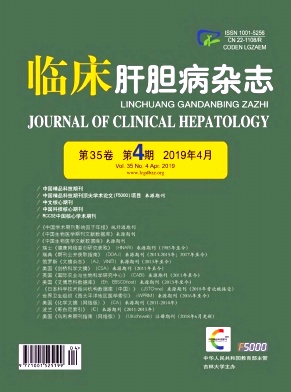ObjectiveTo investigate the interventional effect of mangiferin on carbon tetrachloride (CCl4)-induced hepatic fibrosis in mice and the potential mechanism. MethodsA total of 45 male C57BL/6 mice were randomly divided into three groups: normal control group (NC group), liver fibrosis model group (CCl4 group), and mangiferin pretreatment group (CCl4+M group), with 15 mice in each group. An automatic biochemical analyzer was used to measure the serum levels of alanine aminotransferase (ALT) and aspartate aminotransferase (AST); HE staining and Masson staining were performed to observe liver pathological changes; ELISA was used to measure the serum levels of interleukin-1β (IL-1β), interleukin-6 (IL-6), and tumor necrosis factor-α (TNFα); Western Blot was used to measure the protein expression of α-smooth muscle actin (α-SMA), nuclear factor-kappa B (NF-κB), IL-1β, p62, and microtubule-associated protein 1 light chain 3 (LC3) in the liver; quantitative real-time PCR was used to measure the mRNA expression of type I collagen (Col-I) and α-SMA in the liver. A one-way analysis of variance was used for comparison of continuous data between multiple groups, and the least significant difference t-test was used for further comparison between two groups. ResultsHE staining and Masson staining showed a low proportion of mice with hepatocyte degeneration and necrosis and a significant reduction in collagen fibers in the CCl4+M group. Compared with the CCl4 group, the CCl4+M group had significant reductions in the serum levels of ALT and AST (both P<001). ELISA showed that compared with the CCl4 group, the CCl4+M group had significant reductions in the serum levels of IL-1β, IL-6, and TNF-α (all P<0.01). Western Blot showed that compared with the CCl4 group, the CCl4+M group had significant reductions in the protein expression of α-SMA, NF-κB, IL-1β, and LC3-II/I in the liver (P<0.01, P<0.05, P<0.01, and P<0.05) and a significant increase in the protein expression of p62 (P<0.05). Quantitative real-time PCR showed that compared with the CCl4 group, the CCl4+M group had significant reductions in the mRNA expression of Col-I and α-SMA (P<0.05 and P<0.01). ConclusionMangiferin can alleviate CCl4-induced hepatic fibrosis in mice, possibly by reducing inflammation to protect liver function and inhibiting autophagy to reduce the activation of hepatic stellate cells.







 DownLoad:
DownLoad: